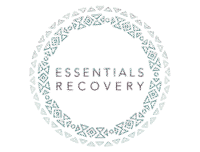Recovery from substance use isn’t just about abstaining from drugs or alcohol—it’s about creating a life that supports ongoing wellness. One of the most effective ways to reinforce recovery is by embracing healthy lifestyle changes. These changes can help stabilize mood, improve physical health, and build structure, all of which are essential for long-term success. As individuals shift away from harmful habits, they can fill their lives with practices and routines that nurture healing and growth.
Creating a lifestyle that supports recovery is a process. It takes time, patience, and a willingness to try new things. But with each step forward, individuals can build a strong foundation that reinforces their sobriety and supports a higher quality of life.
Prioritizing Nutrition and Hydration
Good nutrition plays a critical role in the recovery process. Substance use can often lead to poor dietary habits, nutritional deficiencies, and disrupted appetite. Restoring physical health through balanced eating helps repair the body and mind, boosts energy, and stabilizes mood.
Eating regular meals that include whole grains, lean proteins, healthy fats, fruits, and vegetables helps regulate blood sugar and reduce cravings. Hydration is equally important, especially for individuals whose bodies are adjusting after detoxification. Drinking plenty of water and limiting sugary or caffeinated beverages can improve focus and reduce irritability.
Many people in recovery find that cooking at home becomes a grounding, positive ritual. It encourages mindfulness and gives a sense of control. In time, food becomes a source of nourishment and pleasure rather than neglect or escape.
Rebuilding Physical Health Through Exercise
Exercise is another cornerstone of a healthy recovery lifestyle. Regular physical activity can reduce stress, improve sleep, and release endorphins—natural chemicals in the brain that promote happiness and well-being. For those in recovery, this natural boost can be a powerful alternative to the highs once sought through substances.
Exercise doesn’t have to be intense to be effective. Walking, yoga, swimming, or dancing can all provide physical and mental benefits. The key is to find an activity that feels enjoyable and sustainable. As individuals get stronger and more confident in their bodies, they often feel more empowered in other areas of life as well.
For some, group fitness classes or team sports offer a sense of connection and routine. For others, solo activities like running or biking provide quiet time for reflection. No matter the form, movement plays a vital role in healing.
Establishing a Healthy Sleep Routine
Sleep is often one of the first things disrupted by substance use and one of the last to normalize during early recovery. Insomnia, restlessness, and fatigue are common and can make it harder to stay on track. Developing a healthy sleep routine is essential for both physical and emotional stability.
Creating a calming bedtime ritual, maintaining consistent sleep and wake times, and limiting screen time before bed can all support better sleep hygiene. Avoiding caffeine and heavy meals in the evening can also help the body wind down more easily.
Sleep allows the brain and body to repair and recharge. Over time, improved sleep can reduce anxiety, improve concentration, and enhance overall mood, making it easier to manage daily stressors and triggers.
Building a Strong Support Network
Recovery is not a journey that should be taken alone. Surrounding oneself with supportive, understanding people can make a world of difference. Whether it’s family, friends, peers in recovery, or professionals, a strong network provides encouragement, accountability, and a sense of belonging.
Joining recovery groups, attending meetings, or connecting with sober peers helps reduce isolation and reinforces healthy behavior. Relationships that are based on honesty, trust, and mutual respect help create a stable emotional environment, which is essential for long-term success.
It’s equally important to distance oneself from toxic or triggering relationships—those that enable substance use or undermine growth. As new connections are formed and nurtured, they begin to replace the role that substances once played, offering meaningful and positive companionship.
Managing Stress in Constructive Ways
Stress is a normal part of life, but it can be a major trigger for relapse if not managed effectively. One of the most valuable lifestyle changes in recovery is learning how to respond to stress without turning to substances.
Developing coping strategies such as mindfulness, meditation, journaling, or engaging in hobbies can help regulate emotions and reduce anxiety. Practicing deep breathing or grounding techniques can calm the body during moments of tension.
For some, talking to a therapist or counselor provides a safe space to process emotions and develop resilience. Over time, individuals learn to recognize their stress signals and use healthier responses, reinforcing their recovery and preventing setbacks.
Creating Structure and Purpose
A structured daily routine brings predictability and stability, which are especially important in early recovery. Having a consistent schedule helps reduce idle time, which can often lead to boredom and cravings. It also builds momentum and a sense of accomplishment.
Establishing a regular rhythm for waking, eating, working, and relaxing can create a solid framework for a healthy life. As routines become habits, they offer comfort and a sense of normalcy.
In addition to structure, having a sense of purpose is deeply motivating. Whether it’s pursuing education, engaging in volunteer work, caring for family, or finding meaningful employment, purpose gives direction and value to each day. It helps shift focus from the past to the future and reinforces the belief that life can be fulfilling without substances.
Avoiding High-Risk Situations
While embracing new habits is important, avoiding environments and situations that put recovery at risk is equally essential. This means recognizing the places, people, or patterns that contributed to past substance use and taking steps to minimize their influence.
Developing boundaries is a key part of this process. This might include limiting contact with certain individuals, avoiding parties or bars, or declining invitations that don’t align with recovery goals. While this can be difficult, it’s also empowering. Protecting one’s sobriety becomes an act of self-respect and commitment.
Over time, as new habits and relationships take root, the pull of old environments weakens. What once felt like a loss becomes a clear gain.
Embracing Emotional Wellness
Addiction often masks deeper emotional pain—whether from trauma, loss, or low self-worth. Recovery offers a chance to begin healing at the emotional level, and making time for emotional wellness is a key lifestyle change.
Practices like therapy, journaling, or attending support groups help process feelings in a safe, constructive way. Exploring creativity through art, music, or writing can also serve as emotional outlets.
Emotional wellness also includes learning how to celebrate progress and forgive setbacks. Recovery is rarely linear, and self-compassion is essential. By nurturing emotional health, individuals create a stronger foundation for continued growth.
Growing Into a New Lifestyle
Recovery isn’t just about what you leave behind—it’s about what you move toward. Every healthy choice, no matter how small, is a step toward a life of greater clarity, connection, and peace.
Making lifestyle changes is not always easy, especially at first. But with time, consistency, and support, those changes become a new way of living. They create a world where sobriety isn’t just sustainable—it’s rewarding.
Whether it’s preparing nutritious meals, finding joy in movement, maintaining a bedtime routine, or forming meaningful relationships, each of these choices adds up. Together, they form the pillars of a healthy, vibrant life—one built not on fear or avoidance, but on empowerment and purpose. Call us today at 855-509-1697.



